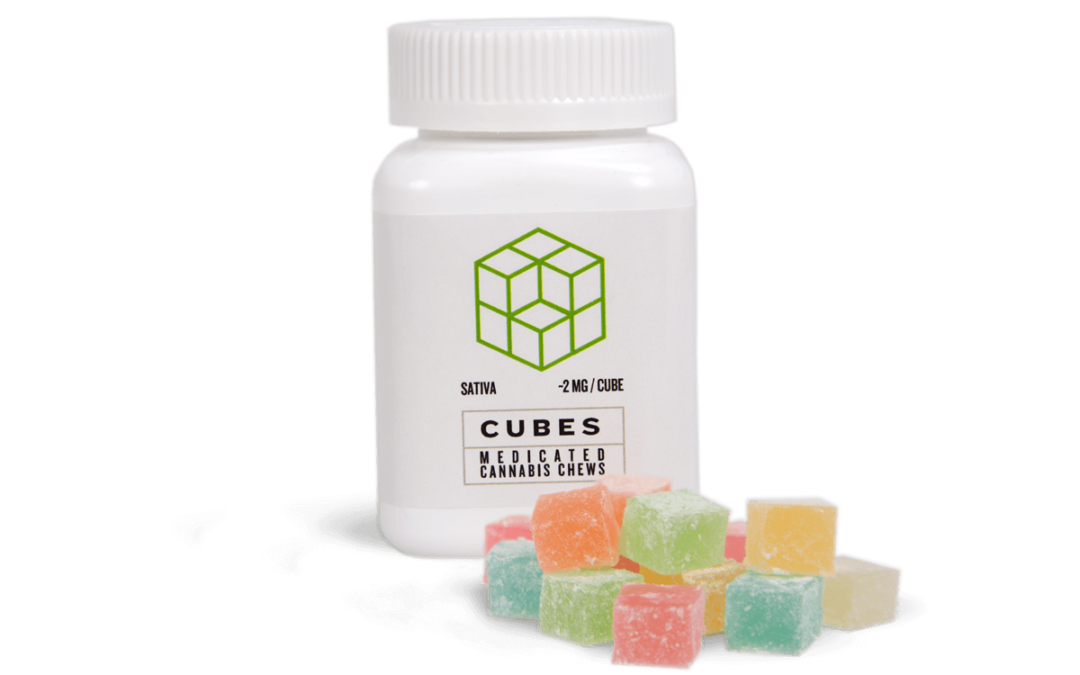Edibles can be a very effective part of a cannabis treatment plan, but it’s just not as simple, if you want consistent and effective relief, as nibbling at a chocolate bar. There are an array of details to consider. Let’s have a look at a few.
Why Use an Edible?
There are many cannabis products out there. Most are simply junk! Of those that actually work, they can be broken down into two major categories: oral or inhaled. Interestingly, cannabis works rather differently when taken by mouth compared to inhaled. As a consequence, the best approach to treatment depends, not on your preference for a product, but on which approach works best for your illness!
Inhaled products work rapidly (10-15 minutes) but don’t last very long (3-4 hours). This makes them very useful for acute or episodic problems like Migraines. By contrast, oral cannabis medication works slowly (60-90 minutes) and lasts a long time (8-12 hours). This makes them good for chronic, continuous problems like pain. You can think of inhaled as the quick acting medicine, and oral as the extended release medicine. Clearly, for best results, you need to pick the approach that best solves the problem.
Assuming that we’ve chosen to use an edible for its extended duration of treatment, what are the considerations involved in choosing the right product?
How to Choose an Edible
Ultimately, in comes down to getting the right dose of cannabis in the right sort of foodstuff.
Knowing the dose in a product is usually the easy part. Edibles can range from 5 milligrams (mg) up to god-knows how much. However, regulation in most states, including Massachusetts, requires that the dose be tested and reported. The catch is that the tested amount may not match what is on the product label exactly. For example, a “5mg” gummies might test out at 4.5mg or 5.7mg. Usually that variation isn’t enough to change the way it works, but it’s worth checking the label on the back of the product for the actual measurements if a product behaves differently than expected.
It is now common for dispensaries to carry a wide range of THC-infused confections like brownies, cookies, and other delicious treats, and again, indulging in these types of rich foods on special occasions will likely not lead to any major health consequences in the average person.
However, those who use cannabis therapeutically require consistent, daily doses, and regularly eating calorically-dense foods high in sugar and saturated fat is not advised. If you have diabetes, it is important to closely monitor your blood sugar when consuming food, and you may want to avoid foods rich in sugar and saturated fat altogether.
Low Dose, Low Calorie Edibles Are The Best Choice For Medical Marijuana Patients
Those with food allergies or sensitivities may also need to completely avoid baked goods and other foodstuffs at dispensaries as they often contain or are manufactured alongside other products containing common allergens like soy, wheat, eggs, milk, and nuts. Fortunately, dispensaries in Massachusetts are now required to include a label with nutrition facts and an allergy warning alongside all of their food products, so don’t be afraid to ask for this information if it is not immediately provided to you.
Additionally, I recommend avoiding multi-use products like cookies or chocolate bars – one serving may be much smaller than you’d expect. One cannabis-infused cookie, for instance, may actually contain two or more servings and there may be no way to consistently divide it into the right dose.
I recommend simple, low calorie, low dose (5mg) products like gummies. Not only do these provide a workable dose in a low calorie form, but since each gummy is a discrete object it’s hard to mess up the dosing. Either you took the gummy or you didn’t.
Why Use a Food Based Edible?
Why use a food based product at all? Surely we could use tinctures or capsules to avoid excess calories. However, at present, capsules are not widely available, are often super expensive compared to edibles, and are poorly absorbed in the gut. Not a great option presently. Tinctures are also poorly absorbed in the gut, not absorbed under the tongue (as they are promoted to do), and because they’re liquid, it’s very easy to mess up the dose. Also not a great option.
Consult With A Qualified Cannabis Specialist In Massachusetts
Those who are interested in using cannabis as medicine should first speak with a physician who has experience treating patients with medical marijuana. A trained cannabis specialist will be able to guide you towards best practices and advise you how to best use cannabis for your specific condition.
In Massachusetts, you must obtain a medical marijuana card from a qualifying physician in order to enter a registered medical dispensary. If you have any questions about your eligibility for medical marijuana in Massachusetts, please do not hesitate to contact my office. As a trained physician and member of faculty at Harvard Medical School, I am passionate about helping patients find relief through medical cannabis. For more information, or to set up a consultation with my team at InhaleMD, call us (617) 477-8886 today.

